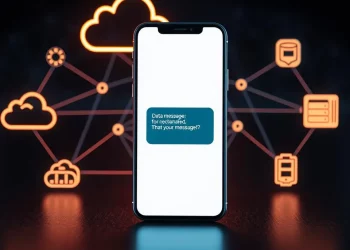Meetings are integral to collaboration and decision-making in today’s fast-paced work environment. However, the challenges of managing multiple tasks, deadlines, and projects can often lead to forgotten or overlooked meetings. This is where meeting reminders play a crucial role in ensuring workplace efficiency. This article will explore how meeting reminders can positively impact productivity, communication, and team dynamics.
Enhanced Time Management
Meeting reminders act as timely prompts, helping employees allocate their time efficiently. With busy schedules, losing track of upcoming meetings is easy, leading to last-minute preparations or even missed sessions. Regular reminders provide individuals ample time to prepare, review materials, and gather relevant information, contributing to more productive and focused discussions during the meeting.
Reduced No-Shows
One of the most significant advantages of meeting reminders is their ability to reduce no-shows. When participants receive reminders about an upcoming meeting, the likelihood of forgetting or missing the meeting is significantly reduced. This leads to better attendance rates and ensures all key stakeholders are present, contributing to more effective decision-making and discussions.
Improved Communication
Meeting reminders serve as reminders of the meeting itself and facilitate communication. Reminders often include meeting agendas, objectives, and pre-meeting materials. This ensures that participants come prepared, creating a more informed and engaging discussion. Additionally, these reminders can prompt participants to raise questions or concerns beforehand, streamlining the meeting process.
Minimized Multitasking
When participants receive timely reminders about a meeting, they can allocate their time and attention exclusively to that event. This reduces the need for multitasking, which can negatively impact both the quality of work and the effectiveness of the meeting. Participants can wrap up ongoing tasks, set aside distractions, and fully engage in the meeting, leading to more meaningful contributions.
Enhanced Team Dynamics
Consistently sending meeting reminders demonstrates an organizational commitment to effective communication and collaboration. When team members experience proactive communication, it fosters a sense of respect and consideration, enhancing overall team dynamics. Participants feel valued and acknowledged, leading to increased engagement and a positive work atmosphere.
Reduced Stress Levels
Forgotten meetings can lead to stress and anxiety for employees juggling multiple responsibilities. Meeting reminders alleviate this stress by ensuring that participants are well-informed and prepared. When individuals are confident they won’t miss essential meetings, it contributes to a healthier work-life balance and reduces workplace stress.
Streamlined Agenda Execution
Meeting reminders are pivotal in helping teams execute meeting agendas more effectively. With a clear reminder of the meeting’s objectives and agenda items, participants can align their thoughts and contributions accordingly. This focused approach ensures that meetings stay on track, cover all essential topics, and lead to actionable outcomes.
Adaptation to Remote Work
As remote work becomes increasingly prevalent, meeting reminders become even more crucial. In a virtual setting, where coworkers’ physical presence and cues are absent, reminders are anchors that help remote employees stay connected and engaged. Reminders ensure that remote team members know about upcoming meetings and can adjust their schedules accordingly, regardless of their time zone or location.
Efficient Resource Allocation
Meeting reminders also have a direct impact on resource allocation. Whether booking meeting rooms, allocating technological resources, or coordinating team members’ availability, timely reminders contribute to efficiently utilizing resources. This helps avoid last-minute conflicts and ensures everyone is well-prepared for the meeting.
Accountability and Ownership
Sending out meeting reminders can foster a sense of accountability and ownership among participants. Knowing that a meeting is scheduled and imminent encourages participants to complete assigned tasks and deliverables on time. This sense of responsibility contributes to meeting success and promotes a culture of punctuality and reliability within the team.
Customization for Maximum Impact
Different types of meetings require different approaches to reminders. For example, a project kickoff might require a reminder a week in advance, while a daily stand-up might need a reminder just an hour before. By customizing reminders based on the nature and urgency of the meeting, teams can ensure that participants have the appropriate amount of time to prepare.
Continual Improvement Through Feedback
Meeting reminders can also be an avenue for continuous improvement. Encourage participants to provide feedback on meeting effectiveness and the quality of reminders. This feedback loop can help identify areas for enhancement, ensuring that the reminders become more relevant and valuable over time.
Meeting reminders transcend the role of simple notifications; they are catalysts for effective communication, seamless collaboration, and optimized productivity. By consistently utilizing meeting reminders as part of your communication strategy, teams can reap the benefits of enhanced time management, streamlined agendas, and improved accountability.
These reminders testify to an organization’s commitment to efficient and organized operations, resulting in a workplace that operates like a well-oiled machine. In today’s dynamic work environment, where time is of the essence, meeting reminders serve as a beacon that guides teams toward achieving their goals and objectives.
Send a meeting reminder text today.














